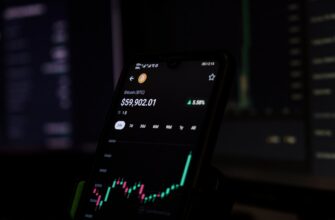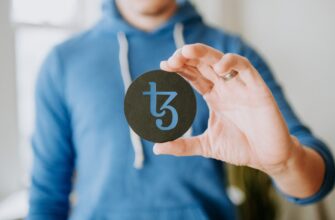- Introduction: Why Cryptocurrency Matters for Newcomers
- What is Cryptocurrency? The Basics Explained
- How Cryptocurrency Works: Blockchain Technology Simplified
- Top 5 Beginner-Friendly Cryptocurrencies
- Buying & Storing Crypto: Your First Steps
- Managing Risks: Smart Practices for Beginners
- Frequently Asked Questions (FAQ)
- Conclusion: Your Crypto Journey Starts Here
Introduction: Why Cryptocurrency Matters for Newcomers
Cryptocurrency has revolutionized finance, yet many beginners feel overwhelmed by its complexity. This guide demystifies digital currencies with plain-language explanations, practical steps, and safety tips. Whether you’re curious about Bitcoin or exploring blockchain technology, we’ll equip you with foundational cryptocurrency knowledge to navigate this exciting space confidently.
What is Cryptocurrency? The Basics Explained
Cryptocurrency is digital money secured by cryptography, operating on decentralized networks called blockchains. Unlike traditional currencies controlled by banks, cryptocurrencies enable peer-to-peer transactions without intermediaries. Key characteristics include:
- Decentralization: No central authority controls the network
- Transparency: All transactions are recorded on public ledgers
- Scarcity: Many cryptocurrencies have limited supplies (e.g., only 21 million Bitcoin will ever exist)
- Security: Cryptographic encryption protects against fraud and hacking
How Cryptocurrency Works: Blockchain Technology Simplified
Blockchain is the engine powering cryptocurrencies. Imagine a digital ledger duplicated across thousands of computers worldwide. When you send crypto:
- Your transaction request broadcasts to the network
- “Miners” or “validators” verify its legitimacy using complex math
- Approved transactions bundle into a “block”
- The block chains to previous blocks, creating an immutable record
This decentralized verification makes transactions secure and nearly impossible to alter retroactively.
Top 5 Beginner-Friendly Cryptocurrencies
Start with established coins known for stability and resources:
- Bitcoin (BTC): The original cryptocurrency, ideal for learning fundamentals
- Ethereum (ETH): Supports smart contracts and decentralized apps
- Litecoin (LTC): Faster transactions than Bitcoin with lower fees
- Cardano (ADA): Eco-friendly proof-of-stake blockchain
- Stablecoins (USDT/USDC): Value-pegged to fiat currencies, minimizing volatility
Buying & Storing Crypto: Your First Steps
Buying Process:
- Choose a reputable exchange (Coinbase, Binance, or Kraken for beginners)
- Complete identity verification (KYC process)
- Deposit fiat currency via bank transfer or card
- Select your cryptocurrency and execute the trade
Storage Solutions:
- Exchanges: Convenient but vulnerable to hacks (only keep small amounts)
- Software Wallets: Free mobile/desktop apps (Exodus, Trust Wallet)
- Hardware Wallets: Physical devices offering maximum security (Ledger, Trezor)
Managing Risks: Smart Practices for Beginners
Cryptocurrency involves unique risks. Protect yourself with these strategies:
- Volatility: Never invest more than you can afford to lose
- Scams: Avoid “get rich quick” schemes and fake giveaways
- Security: Enable two-factor authentication and never share private keys
- Regulation: Stay updated on crypto laws in your country
Dollar-cost averaging (regular small investments) reduces timing risks in volatile markets.
Frequently Asked Questions (FAQ)
Q: Is cryptocurrency legal?
A: Most countries permit crypto, but regulations vary. Always check local laws.
Q: How much money do I need to start?
A: You can begin with as little as $10-$20 on most exchanges.
Q: Can I lose all my money?
A: Yes, through market crashes or security failures. Only risk disposable income.
Q: What’s a private key?
A: A cryptographic password proving ownership of your crypto. Never share it!
Q: Are crypto transactions anonymous?
A: Pseudonymous – transactions are public but not directly linked to identities unless disclosed.
Conclusion: Your Crypto Journey Starts Here
Mastering cryptocurrency knowledge empowers you to participate in the digital economy safely. Start small, prioritize security, and continue learning through trusted resources. Remember: every expert was once a beginner. Bookmark this guide as you take your first steps into the transformative world of digital assets!








